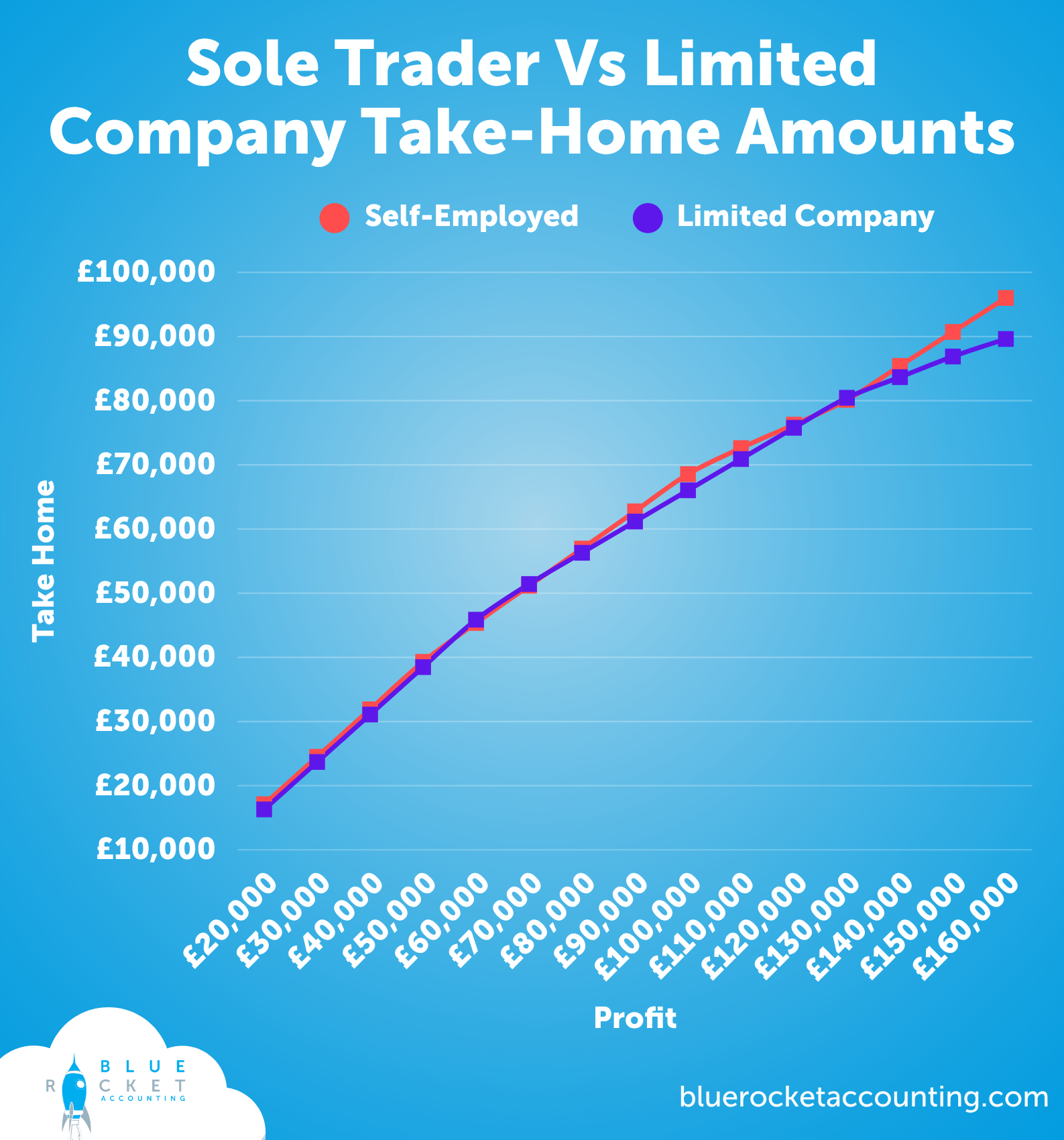Sole Trader vs Limited Company Calculator - Free Tool
Trying to decide whether to stay a sole trader or become a limited company? Our sole trader vs limited company calculator crunches the numbers fast, revealing the impact on take-home pay, UK tax and fees. Pop in your turnover, costs and accounting charges, hit “Calculate” and get instant clarity on which route leaves more money in your pocket—no jargon, no guesswork.
Figures are illustrative only. We assume:
- one director
- the minimum tax-efficient salary
- the rest taken as dividends
If that’s not you, adjust the inputs or have a quick chat with our team.
What a limited company can do for you
- Credibility boost – some clients insist on using a limited company.
- Limited liability – your personal assets get a safety buffer.
- Flexible profit extraction – blend salary & dividends to match cash-flow.
- Easier to attract investment – share options help bring in talent or cash.
- Pension perks – company pension contributions are usually corporation-tax deductible.
(Dig deeper in our guide to Accounting for Limited Companies )
And the downsides
- Extra admin & Companies House filings.
- Directors’ legal duties.
- Higher running costs (accounts, payroll software, etc.).
- Less privacy – some details land on the public record.
Need help weighing it all up? Try our article [Sole Trader or Limited Company: Which is Right for You?]
What the Results Really Mean

At the moment, there isn’t a huge difference between being self-employed and running a limited company. But from April 2026, Making Tax Digital will mean higher accounting fees for many sole traders, which will narrow that gap even more.
On paper, sole traders might still take home a little more cash as profits rise, but a limited company offers far greater flexibility. You can reinvest profits, reduce your income tax, and keep your personal assets protected.
So while a limited company might show slightly less take-home pay today, it can put you in a stronger position long term – with more control, protection, and room to grow.
Fees, flexibility & getting proper advice
Every business is different – from accounting fees and dividend strategy to the number of directors and staff. That’s why the fee boxes are editable: drop your own numbers in.
Fancy a fixed accounting quote?
Give a call or email using the details on our contact page, and we'll get a same day proposal out to you.
Want to Explore More About Limited Business'?
We think you’ll find the below blogs quite helpful
- Sole Trader or Limited Company: Which Is Right for You? | Blue Rocket
- Making Tax Digital for Self‑Assessment: Are You Ready For 2026? | Blue Rocket
- Is Your Business Idea Ready to Launch? A Quick Checklist | Blue Rocket
It’s not rocket science, it’s just great accounting.








